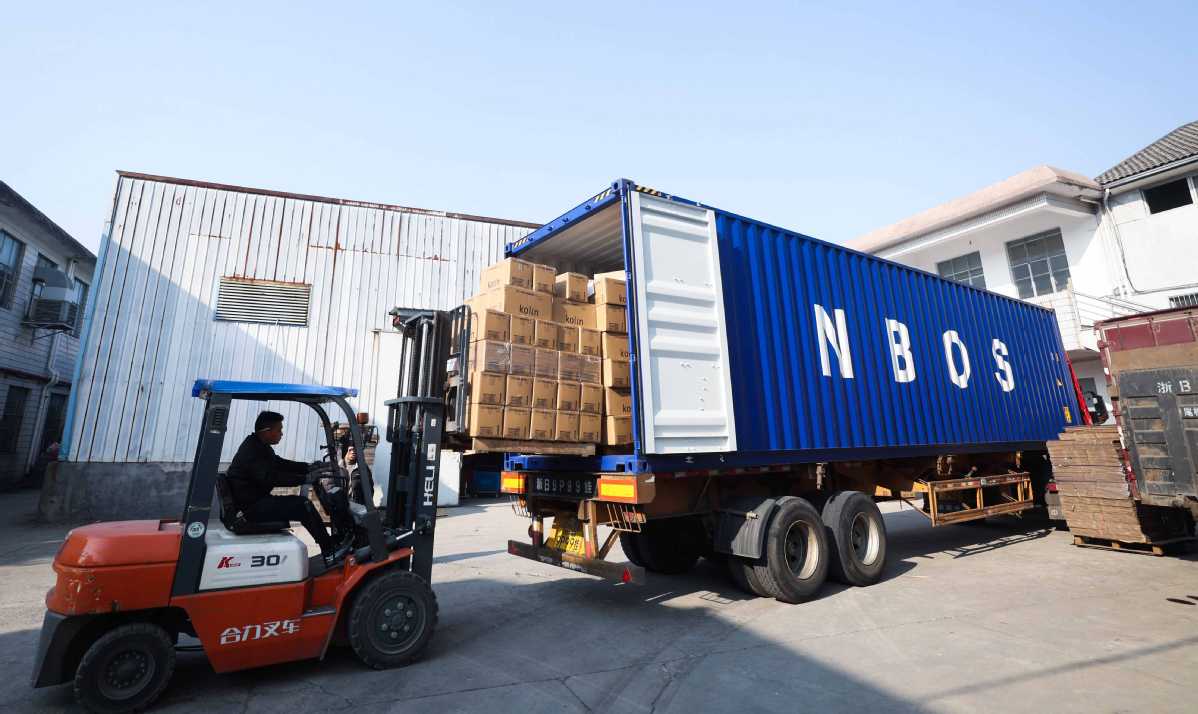Second-gen entrepreneurs take up family biz batons
Tech upgrades, e-commerce common campaigns undertaken by children of company founders


Innovation
Hog raiser Ye realized the importance of leveraging the financial market for corporate growth while studying abroad. Over the years, he's been persuading his father to get ready for public listing, but to no avail. His father was content with maintaining the status quo — a company with an annual turnover of 2 billion yuan.
After he finally decided to take over his father's company in 2018, he began pressing ahead with an initial public offering. The company is on the trajectory of going public in 2025. Ye, always eager to make a difference, has already envisioned ambitious plans for the company after its IPO.
In 2017, after finishing his studies in the US, Luo Lujin embarked on the journey of taking over the home appliance company his father founded in Cixi. "During my studies in the US and my visits to many other companies, I've learned plenty of good practices and managerial concepts that I cannot wait to put into practice in running my family company," said Luo, 30.
"However, the company was running largely like a mom-and-pop shop back then," said Luo, adding that he was worried about seeing nothing he'd learned was being applied, and he was overwhelmed by the pressure of steering the company out of a tough period.
Fortunately, his father was willing to hear his opinions. He helped his father find the niche market of air fryers, and the company has embraced a period of rapid growth since then. Orders are rolling in, and new plants are about to be constructed, Luo said.
Shen Ze, 31, general manager of Kadiya — another home appliance firm in Cixi — foresaw the importance of e-commerce to the sector when still in college.
He took over the company after graduating in 2016 and wasted no time in building his e-commerce marketing team. Since then, the business of Kadiya heaters has boomed, and the sales volume of e-commerce represents over 60 percent of total sales.
In China's southern metropolis of Shenzhen, Guangdong province, many second-generation entrepreneurs are also navigating unfamiliar waters. Zheng Jiming has expanded the business map of the company his father founded from the construction sector to cross-border e-commerce, seizing the opportunity of Shenzhen to introduce an upgrading plan for its bonded area.
In 2012, Zheng turned an old factory building of his company in a bonded area into a demonstration and trading center for imports and exports, providing one-stop services for cross-border e-commerce trading. The company now boasts total fixed assets exceeding 2 billion yuan and more than 200 employees.
Government role
The succession and development of enterprises hold implications for the social and economic development of the region. Therefore, local authorities should play their roles, said Lin Jian, Party secretary of Cixi.
Cixi is a hub of small, closely intertwined home-appliance producers, and the fallout of any mistake may ripple across the entire industrial cluster, Lin said. "Most enterprises of small home appliances are small in terms of their scales and ill-prepared for risks, and government support could just come in handy."
Lin said with the current management transition, government agencies are supposed to provide services and guidance. For instance, local authorities have organized on-campus job fairs for enterprises. They've also invited new-generation entrepreneurs to watch business start-up road shows by college students, in the hope of galvanizing new ideas and matchmaking new teams for innovation.
According to data provided by local authorities in Cixi, about 80 percent of enterprises that have completed or are undergoing generational transition see the second generation stay in the same business lane as their parents. Most of them are pursuing innovations, introducing new products and new technologies, or carrying out industrial upgrading, breathing new life into family businesses.
Xinhua
- Expos back in business across nation
- Chinese New Year celebrations in Kolkata highlight tradition and mobility
- Countries embrace returning Chinese travelers for Lunar New Year and beyond
- Return of relic from US to China a sign of friendship
- Taiwan-born entrepreneur expands lotus business across China



































